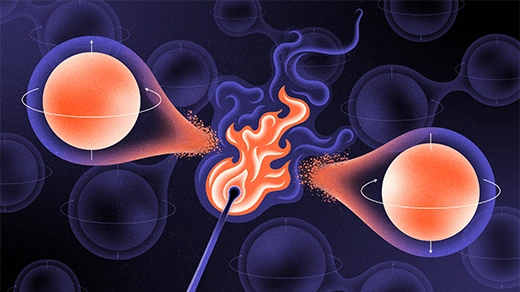What's up in
Algorithms
Latest Articles
‘Quantum Memory’ Proves Exponentially Powerful
Researchers are exploring new ways that quantum computers will be able to reveal the secrets of complex quantum systems.
Computer Scientists Prove That Heat Destroys Quantum Entanglement
While devising a new quantum algorithm, four researchers accidentally established a hard limit on entanglement.
What Is Machine Learning?
Neural networks and other forms of machine learning ultimately learn by trial and error, one improvement at a time.
The Question of What’s Fair Illuminates the Question of What’s Hard
Computational complexity theorists have discovered a surprising new way to understand what makes certain problems hard.
Computation Is All Around Us, and You Can See It if You Try
Computer scientist Lance Fortnow writes that by embracing the computations that surround us, we can begin to understand and tame our seemingly random world.
Computer Scientists Invent an Efficient New Way to Count
By making use of randomness, a team has created a simple algorithm for estimating large numbers of distinct objects in a stream of data.
Scientists Find a Fast Way to Describe Quantum Systems
After years of false starts, a team of computer scientists has found a way to efficiently deduce the Hamiltonian of a physical system at any constant temperature.
Cryptography Tricks Make a Hard Problem a Little Easier
Researchers have shown how to find the simplest description of a data set faster than by simply checking every possibility.
Avi Wigderson, Complexity Theory Pioneer, Wins Turing Award
The prolific researcher found deep connections between randomness and computation and spent a career influencing cryptographers, complexity researchers and more.








